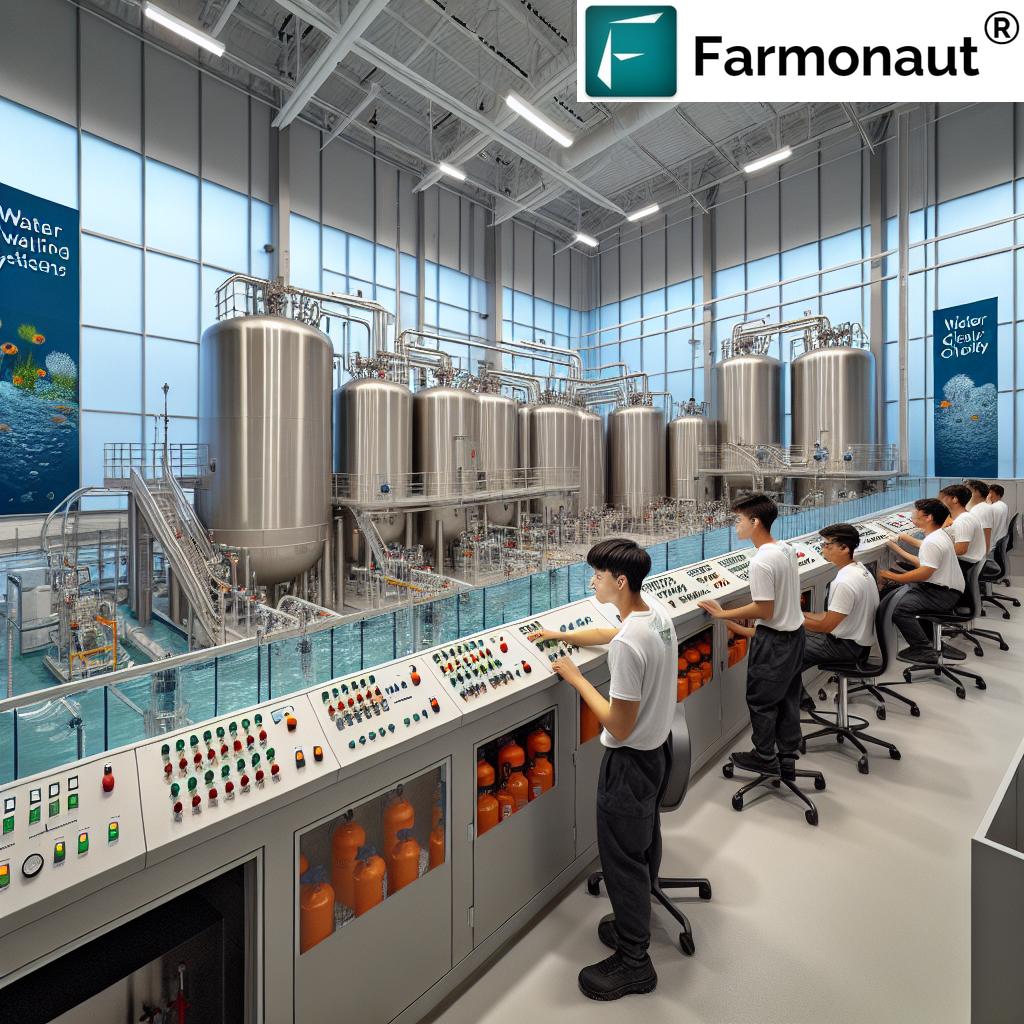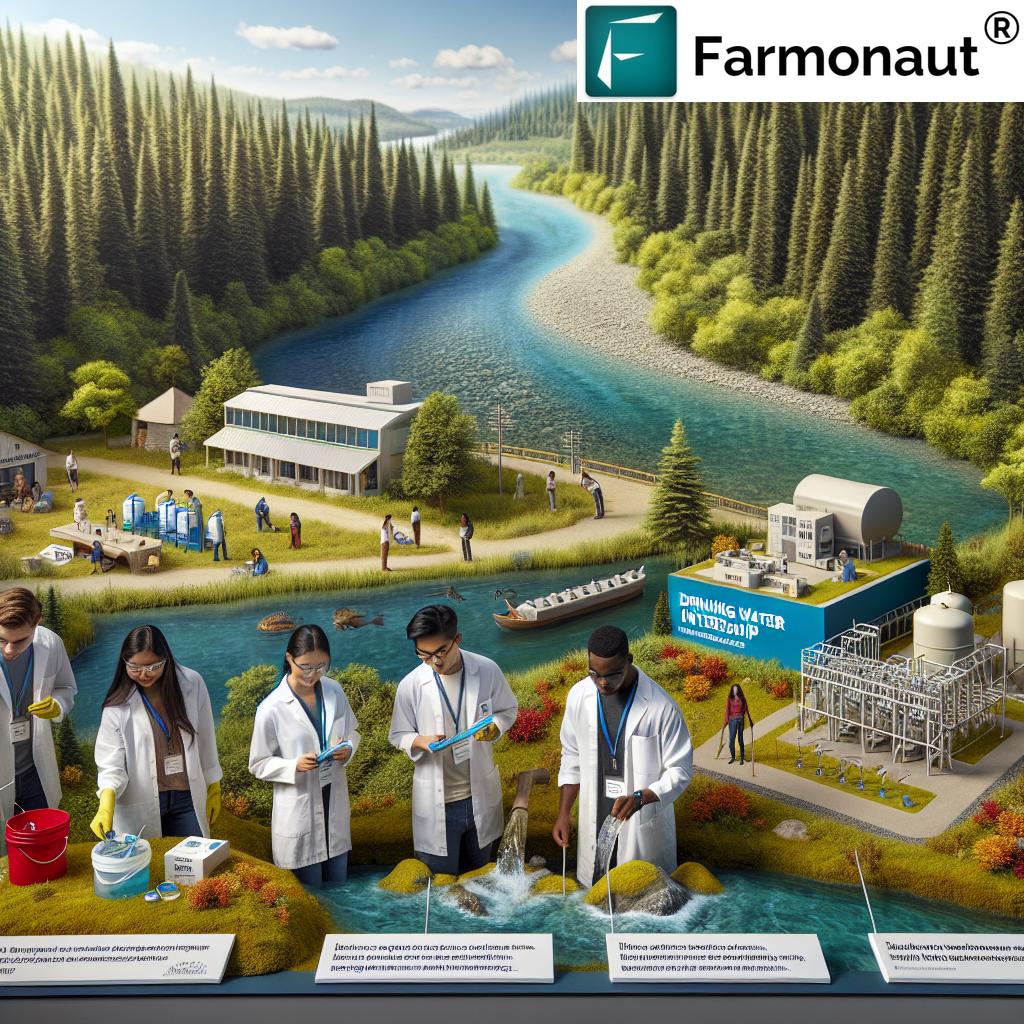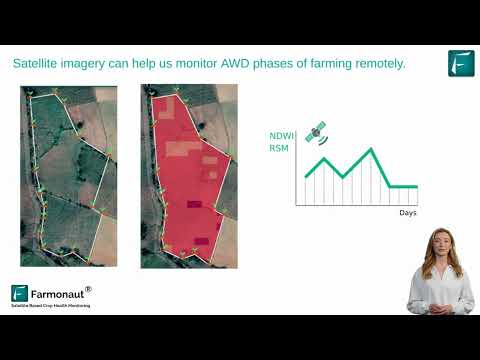Empowering Indigenous Communities: Innovative Water Treatment Training Program Launches in Kenora, Ontario
“The 15-month Drinking Water Internship Program in Kenora, Ontario, aims to address critical water challenges in indigenous communities.”
We are excited to share news of a groundbreaking initiative that is set to transform water management and empower indigenous communities in Kenora, Ontario. The launch of an innovative water treatment plant operator training program marks a significant step towards addressing critical water challenges faced by First Nations communities across Canada.
This comprehensive 15-month Drinking Water Internship Program offers local community members a unique opportunity to gain valuable certifications and hands-on experience in water treatment, distribution, and quality management. By combining classroom learning with practical training in local water and wastewater treatment plants, interns will develop the essential skills needed to pursue rewarding careers in water science while ensuring sustainable access to safe, clean drinking water for their communities.
The Urgent Need for Indigenous Water Operators
Access to clean, safe drinking water is a fundamental human right, yet many indigenous communities in Canada continue to face significant challenges in this area. According to recent statistics, approximately 15% of First Nations communities across the country are affected by drinking water advisories, with this number rising to 19% in Ontario alone. These figures highlight the urgent need for skilled water operators who can effectively manage and maintain water treatment systems in indigenous communities.
The water treatment plant operator training program in Kenora, Ontario, is a direct response to this pressing issue. By empowering local community members with the knowledge and skills necessary to operate and maintain water treatment facilities, we are taking a crucial step towards ensuring long-term, sustainable access to clean water for indigenous populations.

Program Overview: Building Capacity and Expertise
The Drinking Water Internship Program is a collaborative effort between Water First Education & Training Inc., Anishinaabeg of Kabapikotawangag Resource Council (AKRC) participating communities, and Big Island First Nation. This 15-month initiative is designed to provide comprehensive training and support to aspiring water treatment plant operators from indigenous communities.
Key components of the program include:
- 1,800 hours of on-the-job experience in community water and wastewater treatment plants
- Pursuit of certifications as small drinking water and small wastewater operators
- Training for Class 1 water treatment certification
- Workshops on water quality analysis, environmental water sampling, and Geographic Information Systems (GIS)
- Career readiness training to prepare interns for long-term success in the field
By offering this comprehensive training, the program aims to build capacity within First Nations communities, ensuring they have the expertise needed to manage their own water systems effectively and sustainably.
Empowering Indigenous Youth and Women in Water Science
One of the program’s key objectives is to encourage increased participation of indigenous youth and women in the water sciences. To support this goal, the internship offers wrap-around services designed to reduce barriers to participation, including childcare services and transportation assistance.
This focus on inclusivity and support is crucial for creating a diverse and skilled workforce in the water treatment sector. By empowering indigenous youth and women to pursue careers in this field, we are not only addressing immediate water challenges but also fostering long-term sustainability and self-reliance within these communities.
Collaborative Approach: Partnering for Success
The success of this innovative water treatment training program relies heavily on the collaborative efforts of various stakeholders. Water First Education & Training Inc., AKRC participating communities, and Big Island First Nation have come together to develop and implement this critical initiative.
Phil Tangie, Hub Manager and Overall Responsible Operator for AKRC, shares his enthusiasm for the program: “The AKRC Water Hub is pleased to have the Water First Internship Program return to the Treaty three territory a second time considering the success of their first iteration. Ten out of fourteen graduated from the 2021 program and AKRC is confident that we’ll see a similar success this second time around.”
This collaborative approach ensures that the training program is tailored to the specific needs and challenges faced by indigenous communities in the region. By leveraging the expertise and resources of multiple organizations, we can provide a more comprehensive and effective learning experience for the interns.
Addressing Critical Water Challenges
The water treatment plant operator training program in Kenora is designed to address several critical water challenges faced by indigenous communities:
- Infrastructure gaps: Many First Nations communities lack adequate water treatment infrastructure. By training local operators, we can ensure that existing facilities are properly maintained and operated, maximizing their effectiveness.
- Water quality issues: Interns will learn about water chemistry, sampling techniques, and quality management, enabling them to identify and address water quality concerns proactively.
- Shortage of skilled operators: The program directly addresses the lack of trained water operators in indigenous communities, building local capacity and reducing reliance on external expertise.
- Sustainability concerns: By focusing on sustainable water infrastructure and management practices, the program helps ensure long-term access to clean water for future generations.
“The program combines classroom learning with on-the-job training in local water and wastewater treatment plants for comprehensive skill development.”
Curriculum Deep Dive: From Theory to Practice
The Drinking Water Internship Program offers a comprehensive curriculum that covers all aspects of water treatment and management. Key topics explored during the 15-month program include:
- Water chemistry and microbiology
- Treatment processes and technologies
- Distribution system management
- Environmental sampling techniques
- Water quality analysis and monitoring
- Sustainable water infrastructure design and maintenance
- Regulatory compliance and reporting
- Emergency response and risk management
This diverse range of topics ensures that graduates of the program are well-equipped to handle the various challenges they may encounter in their roles as water treatment plant operators.

Hands-On Learning: From Classroom to Treatment Plant
A key strength of the Drinking Water Internship Program is its emphasis on practical, hands-on learning. Interns split their time between classroom instruction and on-site training at local water and wastewater treatment plants. This approach allows them to immediately apply theoretical knowledge to real-world situations, reinforcing their understanding and building confidence in their abilities.
During their on-site training, interns will:
- Observe and participate in daily plant operations
- Learn to operate and maintain various treatment equipment
- Conduct water quality tests and analyze results
- Assist in troubleshooting and problem-solving
- Gain experience in regulatory compliance and reporting
This practical experience is invaluable in preparing interns for the challenges they will face in their future careers as water treatment plant operators.
Career Pathways and Opportunities
Graduates of the Drinking Water Internship Program will be well-positioned to pursue a variety of career opportunities in the water treatment and environmental fields. Potential career paths include:
- Water treatment plant operator
- Wastewater treatment plant operator
- Environmental technician
- Water quality analyst
- Environmental compliance officer
- Water resource manager
The skills and certifications gained through the program are highly transferable, allowing graduates to work in various settings, from small community systems to large municipal treatment plants. This flexibility ensures that participants have a wide range of career options available to them upon completion of the program.
Supporting Long-Term Success: The Water First Alumni Network
Recognizing that ongoing support is crucial for long-term success, graduates of the Drinking Water Internship Program become part of the Water First Alumni Network. This network provides:
- Access to continuing education and professional development opportunities
- Networking events and peer support
- Job placement assistance and career counseling
- Mentorship programs connecting experienced operators with recent graduates
By fostering a strong community of indigenous water professionals, the Alumni Network helps ensure that graduates continue to thrive in their careers and contribute to the ongoing improvement of water management in their communities.
Measuring Impact: Program Outcomes and Success Stories
The success of the Drinking Water Internship Program can be measured through various indicators:
- Number of graduates successfully obtaining certifications
- Reduction in drinking water advisories in participating communities
- Improved water quality metrics and compliance rates
- Increased local employment in water treatment and related fields
- Long-term retention of trained operators in indigenous communities
Early results from previous iterations of the program are promising. As Phil Tangie noted, “Ten out of fourteen graduated from the 2021 program,” indicating a high success rate for participants. These graduates are now making significant contributions to water management in their communities, serving as role models for future generations of indigenous water professionals.
The Role of Technology in Modern Water Treatment
As the water treatment industry evolves, technology plays an increasingly important role in ensuring efficient and effective operations. The Drinking Water Internship Program incorporates training on various technological tools and systems used in modern water treatment plants, including:
- Supervisory Control and Data Acquisition (SCADA) systems
- Advanced monitoring and sensing equipment
- Data management and analysis software
- Geographic Information Systems (GIS) for infrastructure mapping
By familiarizing interns with these technologies, the program ensures that graduates are prepared to work with state-of-the-art systems and can adapt to future technological advancements in the field.
Environmental Stewardship and Sustainability
In addition to addressing immediate water treatment needs, the Drinking Water Internship Program places a strong emphasis on environmental stewardship and sustainability. Interns learn about:
- Watershed management and protection
- Water conservation strategies
- Energy-efficient treatment technologies
- Climate change impacts on water resources
- Sustainable infrastructure design and maintenance
This focus on sustainability ensures that graduates are equipped to make environmentally responsible decisions in their roles as water treatment plant operators, contributing to the long-term health of their communities and ecosystems.
| Program Components | Community Benefits |
|---|---|
| Duration: 15 months | Improved access to clean water |
| Certifications offered: Small drinking water, small wastewater, Class 1 water treatment | Local job creation in water management |
| Key topics: Water chemistry, treatment processes, environmental sampling, GIS | Enhanced community self-reliance |
| Training methods: Classroom instruction, on-site plant experience, workshops | Environmental sustainability through improved water management |
Funding and Support: Ensuring Program Sustainability
The success and longevity of the Drinking Water Internship Program rely on robust funding and support from various sources. Key supporters of the initiative include:
- Indigenous Services Canada
- Indigenous Skills and Employment Training program
- Water First’s donors and partners
This diverse funding base ensures the program’s financial stability and allows for continuous improvement and expansion of training offerings. As the program demonstrates its effectiveness in addressing water challenges and creating employment opportunities, it is likely to attract additional support from government agencies, non-profit organizations, and private sector partners invested in indigenous community development and environmental sustainability.
Looking Ahead: Expanding the Program’s Reach
As the Drinking Water Internship Program in Kenora continues to demonstrate its success, there are plans to expand its reach and impact. Future initiatives may include:
- Offering the program in additional indigenous communities across Canada
- Developing advanced training modules for experienced operators
- Creating online learning resources to supplement in-person training
- Establishing partnerships with post-secondary institutions for continuing education opportunities
- Collaborating with industry partners to provide internship and job placement opportunities for graduates
By continually evolving and expanding the program, we can ensure that more indigenous communities have access to the training and support needed to address their water challenges effectively.
Conclusion: A Sustainable Solution for Clean Water Access
The launch of the innovative water treatment plant operator training program in Kenora, Ontario, represents a significant step forward in addressing the critical water challenges faced by indigenous communities across Canada. By empowering local community members with the knowledge, skills, and certifications needed to manage their own water systems, we are creating a sustainable solution that will have lasting impacts for generations to come.
Through a combination of comprehensive classroom instruction, hands-on training, and ongoing support, the Drinking Water Internship Program is building capacity within First Nations communities and creating new opportunities for indigenous water operators. As graduates of the program take on roles in water treatment plants and related fields, they will play a crucial role in ensuring sustainable access to safe, clean drinking water for their communities.
The collaborative approach and focus on sustainability demonstrated by this program serve as a model for addressing complex environmental and social challenges. By investing in education, training, and local capacity building, we can create lasting solutions that empower communities and protect our vital natural resources.
As we look to the future, the success of initiatives like the Drinking Water Internship Program gives us hope for a world where access to clean, safe water is a reality for all communities, regardless of their location or circumstances. Through continued support, innovation, and collaboration, we can work towards this goal, one trained water operator at a time.
FAQ Section
Q: Who is eligible to participate in the Drinking Water Internship Program?
A: The program is open to members of participating indigenous communities in the Kenora, Ontario area, including those from Anishinaabeg of Kabapikotawangag Resource Council (AKRC) communities and Big Island First Nation.
Q: What certifications can interns earn through this program?
A: Interns can pursue certifications as small drinking water and small wastewater operators, as well as Class 1 water treatment certification.
Q: How long does the internship program last?
A: The Drinking Water Internship Program is a 15-month comprehensive training initiative.
Q: What kind of support is provided to interns during the program?
A: The program offers wrap-around supports including childcare services and transportation assistance to reduce barriers to participation.
Q: What career opportunities are available to graduates of the program?
A: Graduates can pursue careers as water treatment plant operators, wastewater treatment plant operators, environmental technicians, water quality analysts, and more.
Q: Is there ongoing support for program graduates?
A: Yes, graduates become part of the Water First Alumni Network, which provides access to continuing education, networking opportunities, and career development resources.
Q: How is the program funded?
A: The program is funded through Indigenous Services Canada, Indigenous Skills and Employment Training, and support from Water First’s donors.
Q: What is the success rate of the program?
A: Previous iterations of the program have shown high success rates, with 10 out of 14 participants graduating in the 2021 program.
Q: How does this program address drinking water advisories in First Nations communities?
A: By training local water operators, the program builds capacity within communities to effectively manage and maintain water treatment systems, helping to reduce and prevent drinking water advisories.
Q: Are there plans to expand the program to other regions?
A: While the current focus is on the Kenora area, there are plans to potentially expand the program to other indigenous communities across Canada in the future.
Earn With Farmonaut: Affiliate Program
Earn 20% recurring commission with Farmonaut’s affiliate program by sharing your promo code and helping farmers save 10%. Onboard 10 Elite farmers monthly to earn a minimum of $148,000 annually—start now and grow your income!
For more information on Farmonaut’s satellite and weather API, visit our API page and check out our API Developer Docs.







